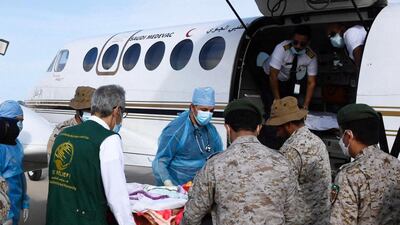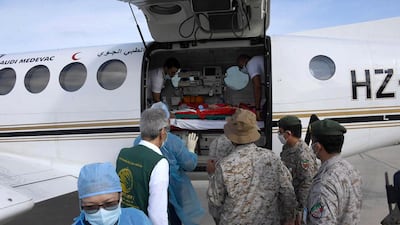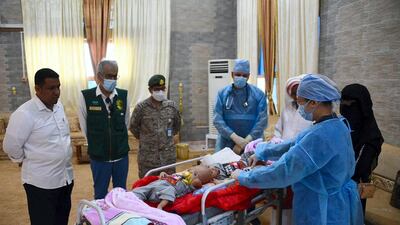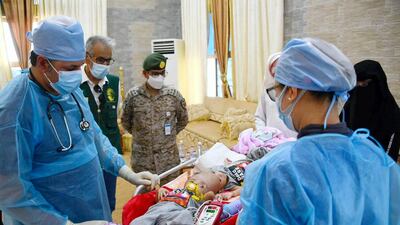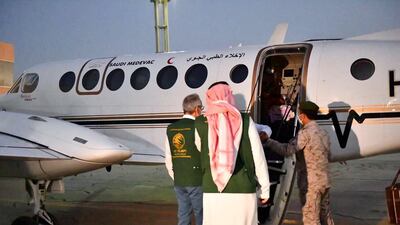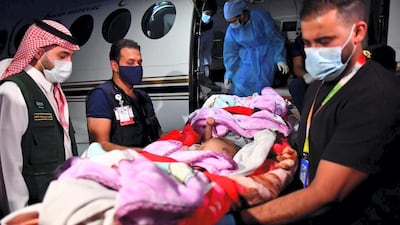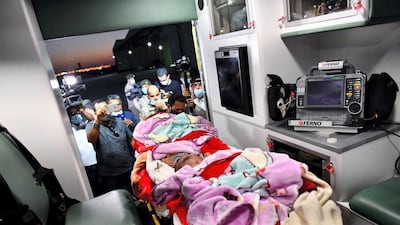Doctors in Saudi Arabia have separated conjoined twins from Yemen in a gruelling 15-hour operation.
The boys, Yusuf and Yassin, who were born conjoined at the head in October 2020, underwent a third and final procedure to separate them at King Abdulaziz Medical City in Riyadh this week.
Dr Moatasem Al Zoubi led the procedure by a group of 24 specialists, including paediatric neurosurgeons, plastic surgeons and anaesthesia experts, who successfully separated the pair.
It was a complicated procedure, said Dr Abdullah Al Rabeeah, adviser to the Royal Court, supervisor general of King Salman Humanitarian Aid and Relief Centre and head of the conjoined twins surgical team.
The twins shared the cerebral venous sinuses and parts of the brain, and had undergone two previous operations to separate the cerebral veins and brain adhesions, and to place skin expanding equipment to help cover the space left after the separation.
Yassin is now in a critical condition after suffering bleeding during the procedure, which was stopped by the surgical team.
The twins’ family live in a mud-brick house in the impoverished Al Trais village in Yemen's south-east Hadramawt province.
In May last year, King Salman and Crown Prince Mohammed bin Salman paid the cost for the boys and their family to be flown to Saudi Arabia for treatment.
Mohammed Abdul Rahman, father of the twins, thanked King Salman and Crown Prince Mohammed for their generosity.
"The cardiogram showed that they have separable brains, which gives us hope for them to survive after separation," Dr Sami Al Amoudi, from Hadramawt’s health department, told The National last April.
The pair are the 51st to be separated by the Saudi Conjoined Twins Programme, since it began in 1990. It includes twins from 23 countries on three continents.
Conjoined twins often share one or more organs and occur in every 50,000 to 200,000 births a Sao Paulo University Medical School study found. In South-West Asia and Africa, this number increases to once in every 14,000 to 25,000 births.
It comes days after authorities flew another set of conjoined twins, Awda and Rahma, from Yemen to Saudi Arabia for assessment. If they are suitable candidates, the pair will be separated.

